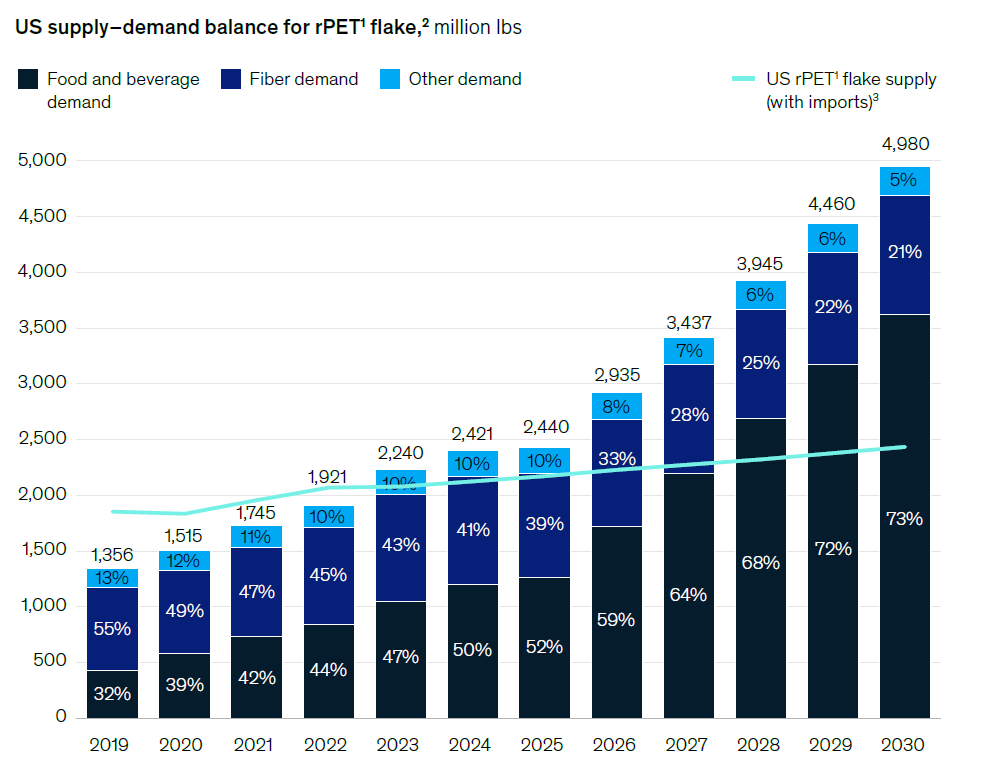Anticipating Challenges as Demand for Recycled PET Increases

McKinsey & Company’s projections indicate a significant challenge on the horizon: the demand for recycled PET is expected to outpace supply by 2030.
This forecast raises crucial questions about the industry’s readiness to meet the escalating demand for sustainable packaging and products.
Growing awareness among consumers and corporations about the environmental impact of plastics drives an increasing demand for recycled alternatives. Consumers, more than ever, seek eco-friendly options. This cultural shift towards responsible consumption is a driving force behind the increasing demand for rPET.
Regulatory landscapes globally are also evolving, with governments pushing for more sustainable practices. Policies promoting the use of recycled content in packaging and products are gaining traction. While these regulations signify a positive step towards a circular economy, they also exert pressure on industries to source and utilize greater amounts of recycled materials.
Challenges of PET recycling
Despite these positive drivers, the industry faces several challenges. Technological limitations in recycling processes and infrastructure gaps hinder the efficient production of rPET. The collection, sorting, and processing of post-consumer PET bottles require substantial investments and advancements in technology to keep pace with the surging demand.
Market dynamics, economic conditions, and the balance between the cost competitiveness of recycled materials versus virgin materials also play key roles.
A holistic approach is imperative
In conclusion, to bridge the anticipated gap between demand and supply, a holistic approach is imperative. This includes substantial investments in recycling infrastructure, advancements in recycling technologies, and the development of efficient collection systems.
Collaboration among stakeholders—industry players, governments, and consumers—is crucial. As the demand for recycled PET intensifies, strategic initiatives and investments will be crucial in ensuring that industry’s journey towards sustainability remains on course.

